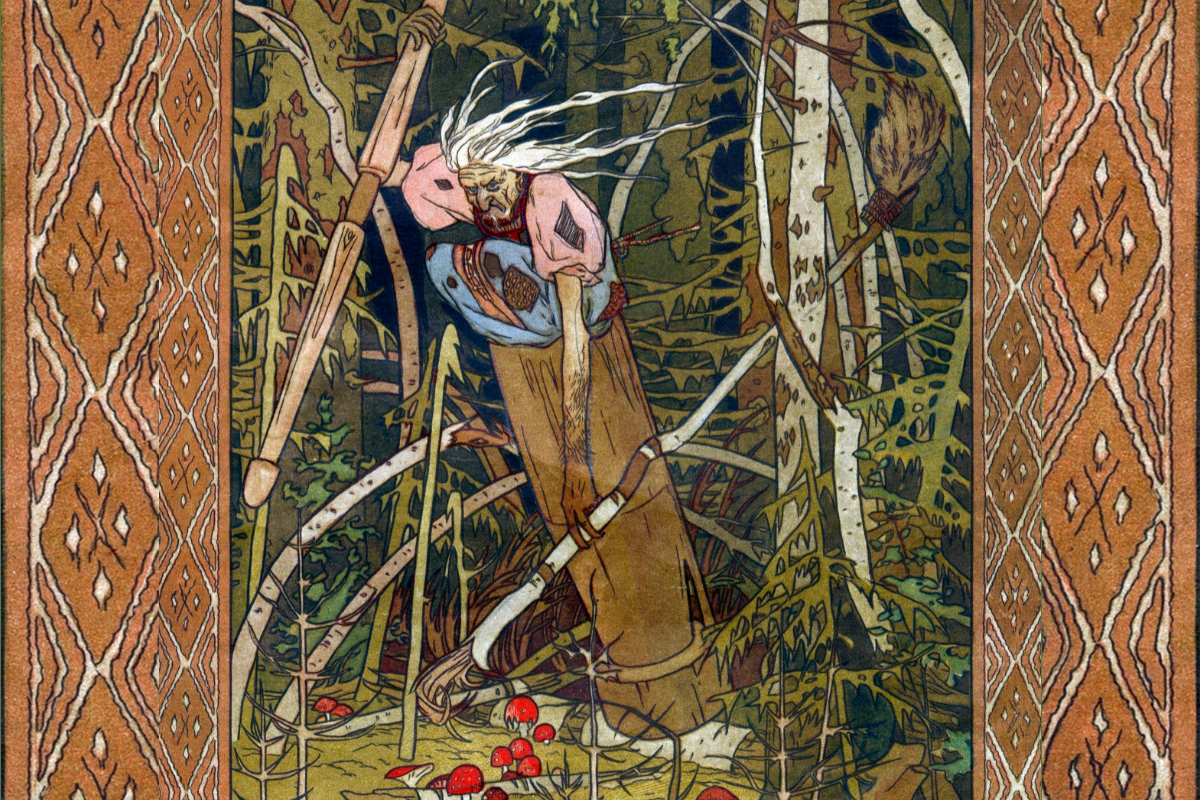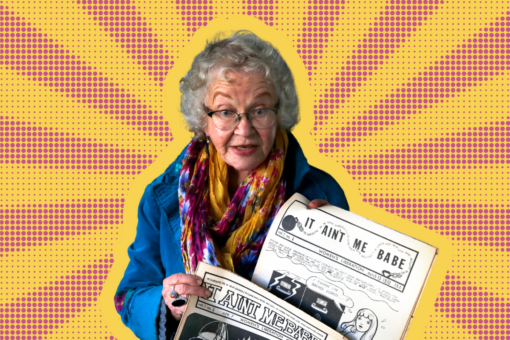There is often an element of apprehension surrounding Baba Yaga, this witch of the woods who flies in a mortar and pestle and lives in a house that runs on chicken legs. Yet as someone who grew up on Slavic folklore, Baba Yaga is less of a scary stranger than a beloved family member, a grandmother-esque figure who inspires equal amounts fear, respect and love.
Growing up, Baba Yaga always lived in the periphery of my family, a shadow-figure who existed in the general folklore of my background as well as the picture books and films I loved reading and watching like “Babushka Baba Yaga” by Patricia Polacco and the 1999 animated film “Bartok the Magnificent.” Like many other children, I loved Baba Yaga for her strangeness, her connection to the supernatural and just her general lack of interest in dealing with the foolish ways of humans (especially foolish men).
As I grew older and started to research folklore and Jewish identity more deeply, I realized there are other reasons why I connected with her, too.
Throughout history, witches and Jewish coding have gone hand in hand — usually not in a very good way. When we consider analyzing witches through a Jewish perspective, we see portrayals of curly hair and crooked noses as ugly in comparison to the Aryan beauty of goyish princesses, and their infamous desire to eat children (à la “Hansel and Gretel”) could be connected to the scapegoating of Jewish people in blood libel. Antisemitism in fairytales has been a long-time feature, especially when it comes to witches.
But consider this: Perhaps Baba Yaga’s portrayal is different. Perhaps Baba Yaga’s connection to the woods and nature, her knowledge of potions and plants, could be linked to the opshprekherins (translation: curse-breakers), the often female folk-healers of Jewish shtetls known for their knowledge of Ashkenazi herbalism. Perhaps Baba Yaga’s hut in the woods is simply a dacha, a seasonal home that many Slavic Jews like my family escaped to when they needed a break from the rest of the world, especially from an antisemitic society.
In some ways, Baba Yaga reminds me of my own babushka. Like Baba Yaga, my paternal grandmother is a no-nonsense woman, like many Slavic Jewish grandmothers are. Like Baba Yaga and the young heroes who went to her for counsel and help, my grandmother is strict and commanding, yet helpful with the knowledge she has to give. Whether demanding a clean home, like Baba Yaga did with the titular protagonist of “Vasilisa the Beautiful,” or warning others to err on the side of caution (like Ivan in similar stories), my grandmother and Baba Yaga are figures who demand a world that is fair, exchanging equal goods for equal services, as well as one that is compassionate, sometimes softening their sharp tongues for those who need kindness, as my grandmother has often done for me.
While witches have often been looked at with hatred and fear from a patriarchal (and antisemitic) world, I cannot help looking at this marginal type of character, often misunderstood and persecuted by society, with empathy. True, many stories focus on Baba Yaga’s ferocity, her connection to darkness and such. But in other stories, Baba Yaga is also a powerful but lonely woman who sometimes longs for a family and a safe place to be who she is, like so many of us. What if we consider that Baba Yaga is simply a complex character with emotional layers that reach far beyond the myths that overstate only her cruelty and wicked ways.
Etymologically speaking when we break down Baba Yaga’s name, baba means “grandmother” or “old woman,” which gives way to the contemporary Russian spelling for babushka: “grandmother.” As such, perhaps it isn’t so far stretched to think of Baba Yaga as simply a mythologized version of someone I already love and care for. Perhaps in another story somewhere, Baba Yaga and my babushka are in a kitchen, stirring up potions and delicious meals, ready to impart important lessons for other young and wandering souls like me.



